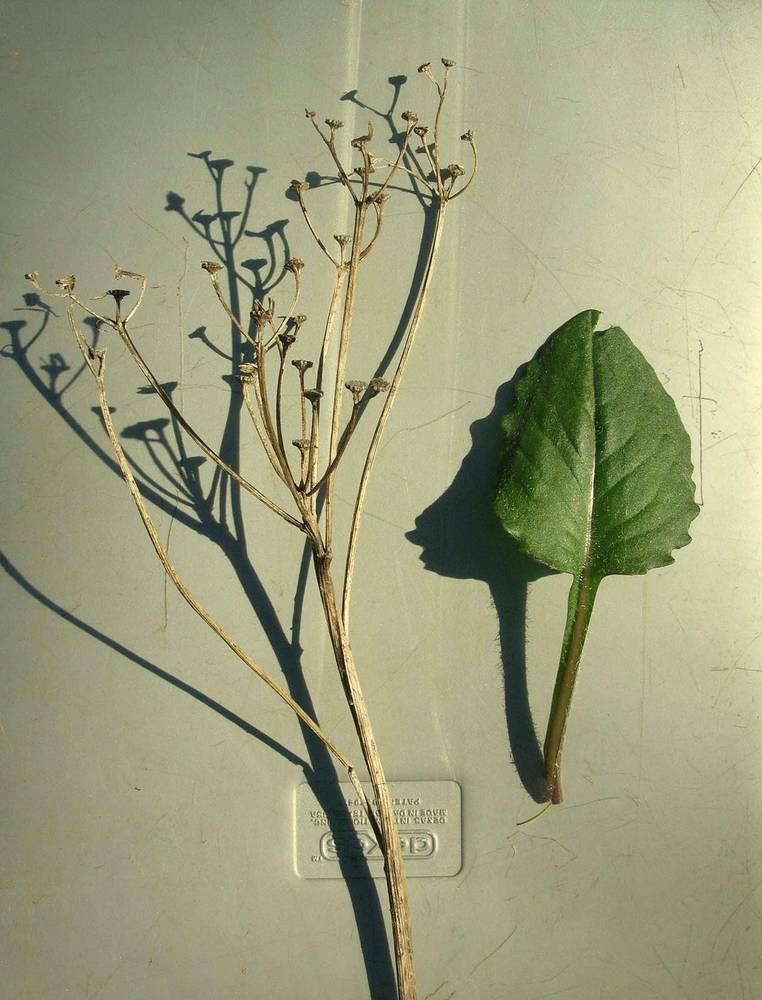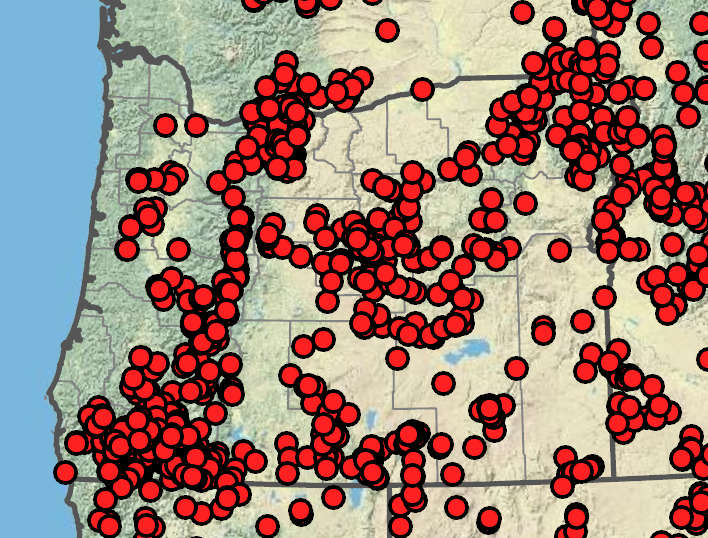Senecio integerrimus
lambstongue ragwort, western groundsel
1, loosely arachnoid-tomentose, or villous, glabrate with age.
mostly basal;
cauline progressively reduced distally; ± petiolate;
basal and lower cauline elliptic, lanceolate, linear, oblanceolate, rounded-deltate, rarely suborbiculate, bases tapered or truncate to cordate;
margins entire or dentate;
distal becoming sessile and bract-like.
corymb-like arrays;
bracts 0 or inconspicuous.
urn-shaped.
5, rarely 0;
rays 6–15(20) mm, yellow or white to pale yellow.
35–45.
(8)13 or 21;
tips usually black, sometimes green.
1–5+, inconspicuous, usually < 2 mm.
2.5–3 mm, usually glabrous, sometimes hairy along ribs.
6–15(30+).
=40, 80.
Senecio integerrimus
Western North America. 5 varieties; 3 varieties treated in Flora.
Debra Trock
- Local floras:
BC,
CA,
OR,
WA
- Local Web sites:
CalFlora,
CalPhotos,
Flora NW,
PNW Herbaria,
Turner Photog.
WildflowerSearch
iNaturalist (observations)
USDA Plants Database
- LBJ Wildflower Center
- SEINet
- Plants of the World Online
- Encyclopedia of Life
- Wikipedia
- Google Image Search



